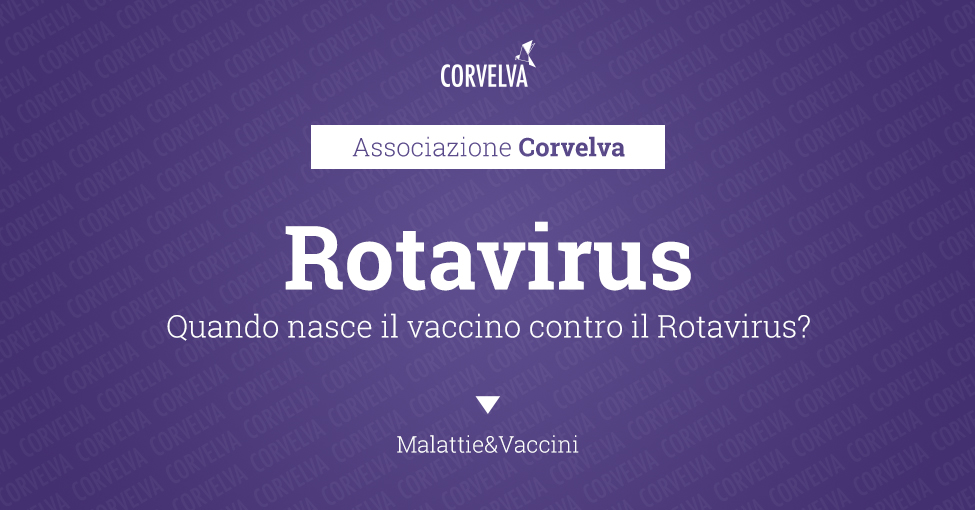When was the Rotavirus vaccine born?

IMPORTANT NOTE: Corvelva invites you to get in-depth information by reading all the sections and links, as well as the manufacturer's product leaflets and technical data sheets, and to speak with one or more trusted professionals before deciding to vaccinate yourself or your child. This information is for informational purposes only and is not intended as medical advice.
Development of rotavirus vaccines began soon after the virus was discovered in 1973, and in August 1998, the U.S. Food and Drug Administration approved RotaShield, a live-virus tetravalent oral vaccine derived from a rhesus monkey strain of rotavirus(1) and manufactured by Wyeth-Lederle.
In the presentation of the RotaShield approval dossier prepared by the US Rotavirus Efficacy Group(2) and submitted to the CDC Advisory Committee on Immunization Practices (ACIP) in February 1997, it was reported that clinical trials in the United States involved 1.278 infants aged 5 to 25 weeks randomized to receive a placebo, a vaccine monovalent or tetravalent rotavirus vaccine (RotaShield). Children participating in the study could also receive other routine vaccines, and safety was only studied for the five days following each dose of vaccine. Fever, diarrhea, and vomiting were the adverse events observed after vaccine administration, and four patients who received the vaccine were hospitalized for these symptoms, one of whom tested positive for rotavirus. All reactions occurred after the administration of the first or second dose and mainly on the third or fourth day after vaccination. Many of the infants who participated in the study also experienced runny noses.(3) This study reported that the tetravalent rotavirus vaccine has an overall efficacy against all rotavirus serotypes of 49%.(4)
Intussusception, a serious condition in which one segment of the intestine slips inside another, was noted in pre-clearance clinical trials and briefly discussed in the FDA review process; however, members of the Vaccines and Related Biological Products Advisory Committee (VRBPAC) chose to ignore the findings, and the vaccine was approved on August 31, 1998. Further discussion of intussusception and its association with the RotaShield vaccine were held at the June 1997 and February 1998 ACIP meetings, but the Panel ruled out any connection.(5)
In the spring of 1999, the Vaccine Adverse Events Reporting System (VAERS) had received several reports of intussusception following administration of the RotaShield vaccine. At the June 1999 ACIP meeting, there was no mention of any security issues related to RotaShield; however, on July 16, 1999, the CDC announced it was suspending the recommendation of RotaShield due to the growing number of reports of intussusception.(6-7)
In August 1999, the US Government Reform Committee began an investigation into federal vaccine policy into possible conflicts of interest among federal policymakers. The Committee focused its investigations on the CDC's Advisory Committee on Immunization Practices (ACIP) and members of the Advisory Committee on Vaccines and Related Biological Products (VRBPAC). The investigation found numerous conflicts of interest between members of both committees and raised significant concerns about the approval process for vaccines, including the RotaShield vaccine.(8)
References (click to open)
- Matson DO. RotaShield: the ill-fated rhesus-human reassortant rotavirus vaccine. Pediatrician Ann Jan. 2006;35(1):44-50.
- US Centers for Disease Control and Prevention. Advisory Committee on Immunization Practices minutes of the meeting, February 12-13, 1997 ACIP Meeting Minutes. 1997:54-59.
- US Centers for Disease Control and Prevention. Advisory Committee on Immunization Practices minutes of the meeting, February 12-13, 1997 ACIP Meeting Minutes. 1997:54-59.
- US Centers for Disease Control and Prevention. Advisory Committee on Immunization Practices minutes of the meeting, February 12-13, 1997 ACIP Meeting Minutes. 1997:54-59.
- Schwartz JL The first rotavirus vaccine and the politics of acceptable risk. Milbank Q June 2012;90(2):278-310.
- Schwartz JL The first rotavirus vaccine and the politics of acceptable risk. Milbank Q June 2012;90(2):278-310.
- US Centers for Disease Control and Prevention. Intussusception Among Recipients of Rotavirus Vaccine—United States, 1998–1999. MMWR July 1999; 48(27): 577-581 .
- US Congress. House of Representatives. Committee on Government Reform. 2000. Conflicts of Interest in Vaccine Policy Making. Majority Staff Report. National Vaccine Information Center June 15, 2000
This article is summarized and translated by National Vaccine Information Center.

